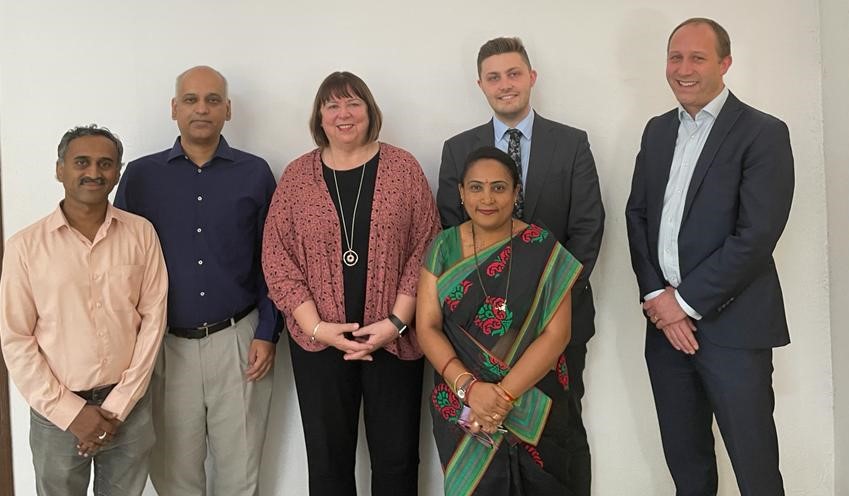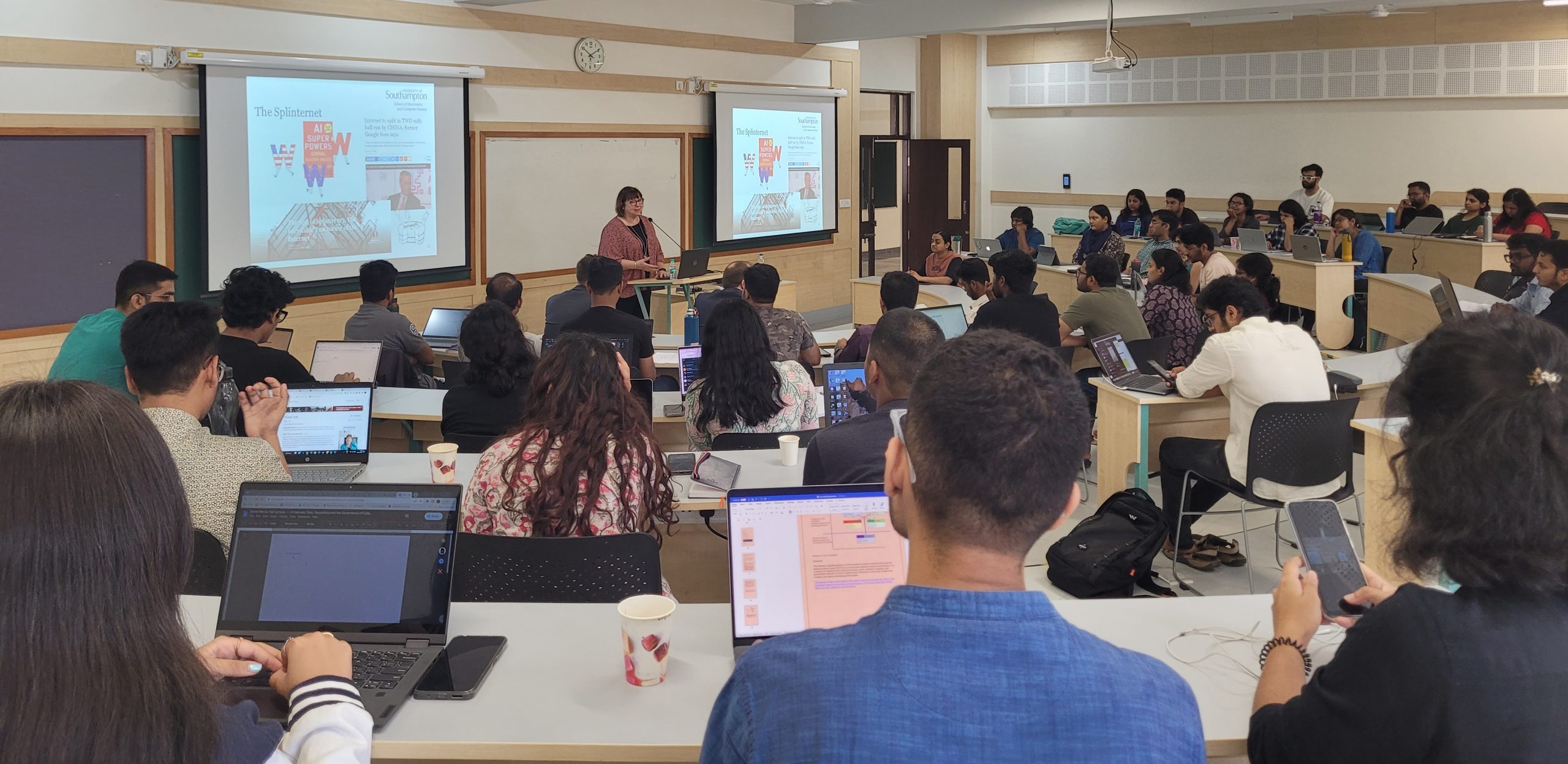Dame Wendy Hall, Regius Professor of Computer Science at University of Southampton Visits NLSIU
March 17, 2023

On 16th March 2023, Dame Wendy Hall, Regius Professor of Computer Science at the University of Southampton, visited the NLSIU campus. During her visit, she delivered a lecture on “Four Internets: Data, Geopolitics and the Governance of Cyberspace.”
Prof. Hall, DBE, FRS, FREng is also the Executive Director of the Web Science Institute. She was appointed Dame Commander of the Order of the British Empire in the 2009 UK New Year’s Honours list and is a Fellow of the Royal Society. She was co-Chair of the UK government’s ‘AI Review’, published in 2017.
Her lecture drew on her recent co-authored book, “Four Internets: Data, Geopolitics, and the Governance of Cyberspace.” This was followed by an interactive session where Prof. Hall engaged with several students and faculty members.
Prof. Hall spoke on the internet’s critical role in keeping the world connected and updated, especially in the context of the COVID-19 pandemic. The fact that the internet stayed up and running during the pandemic is testament to its in-built resilience and scalability, she said. At the same time, there are several concerns around the future of the internet as a globally interconnected system.
The lecture explored the future of the Internet through the lens of geopolitics and data governance. Her book describes the internet as a “fragile construction of hardware, software, standards and databases, run by an ever-expanding range of private and public actors constrained only by voluntary protocols and subject to political pressure.” The book identifies “four internets”, which stand for emerging views on how the internet should be governed:
- The first, the Silicon Valley open internet, reflects the idealism of the internet’s creators, who engineered it to be open, with transparent standards and portable, extensible and interoperable data and software, and also to scale as it grew.
- European nations, and the European Commission, champion a second model — a “bourgeois” internet, where trolling and bad behaviour are minimized and privacy protected, possibly at the cost of innovation.
- China and many other nations see a third, authoritarian internet, where surveillance and identification technologies help ensure social cohesion and security.
- The fourth and more commercial view, characteristic of the US Republicans in Washington, DC, understands online resources as private property, whose owners can monetize them and seek market rates for their use.”
The competition to establish which, if any, of the four internets will prevail (however temporarily) is likely to be strong, and not always focused on win-wins…
Source: https://www.cigionline.org/publications/four-internets-geopolitics-digital-governance/
The authors argue we need to be prepared for the internet that we know to evolve unpredictably, and work to ensure that it remains beneficial for humankind.”
Prof. Hall remarked on the growing internet penetration in India. Given its significance, India’s governance strategy could be a game-changer—making it a potential “fifth Internet,” she said.
This was followed by a brief discussion on contemporaneous developments in the fields of data governance, open access internet and artificial intelligence. Prof. Hall spoke about the data governance models followed in India, China, Europe and the US. She touched upon concerns regarding the misuse of AI, as well as on surveillance and privacy issues. She was optimistic that India would introduce a comprehensive data governance regime based on a spirit of openness, liberal and democratic values, and one that prioritises citizen welfare.
Reflecting on her visit to the University, she said: “It was fabulous to be here at NLS and the students were just fantastic during the session. It was great to talk to students who are not from a technology background. Usually, some students are intimidated, but they asked great questions here. We would love to return here for a workshop soon.”


